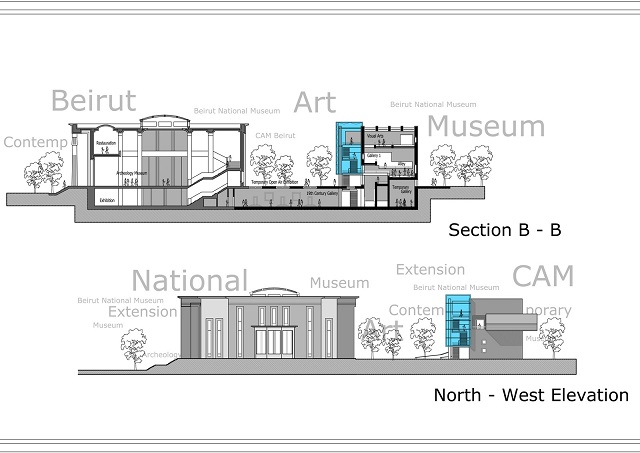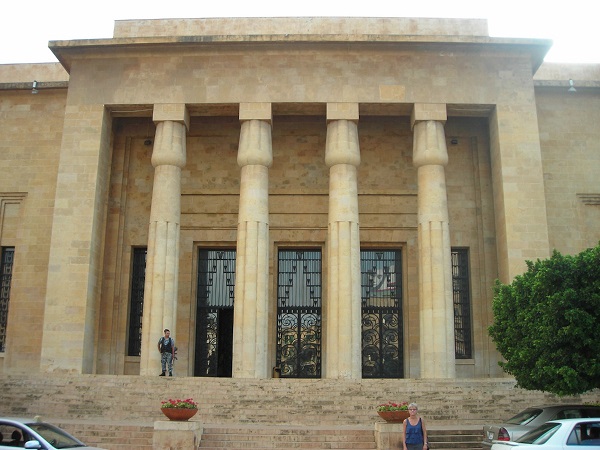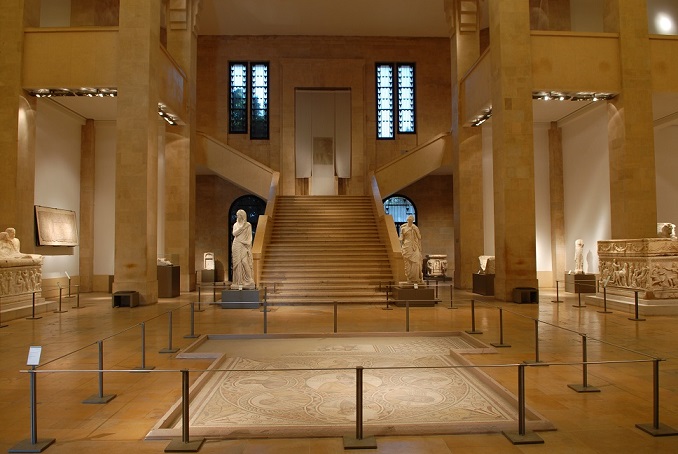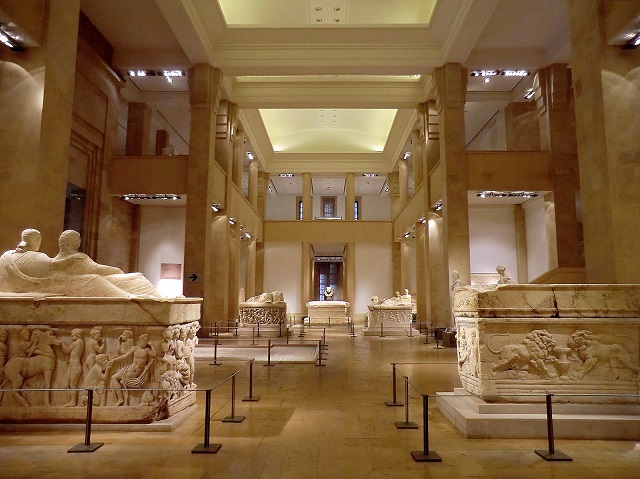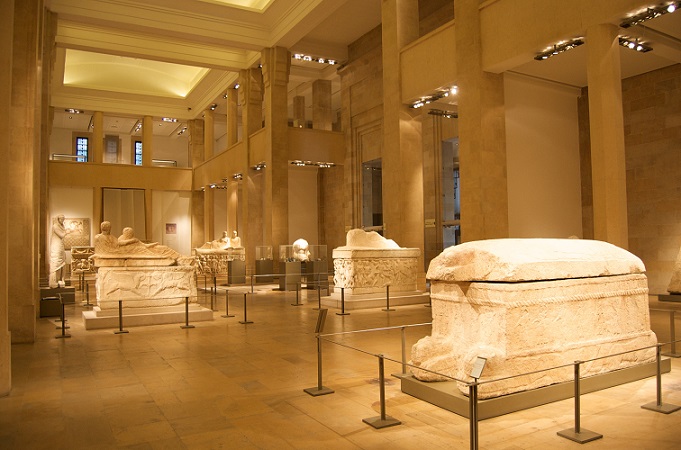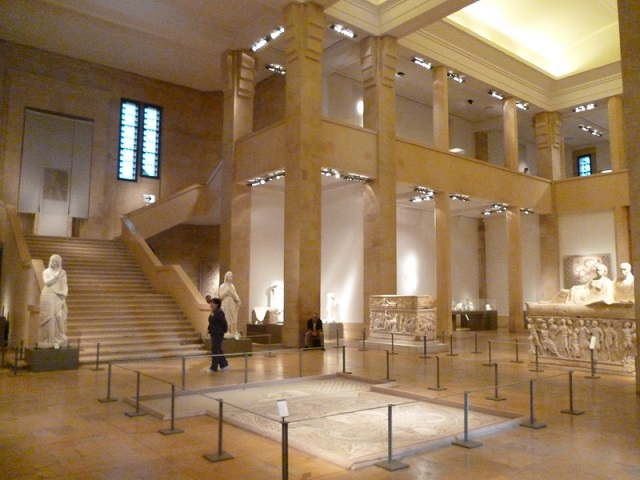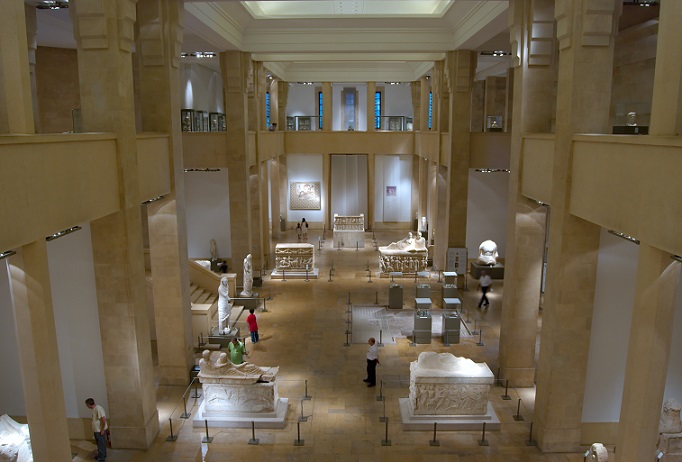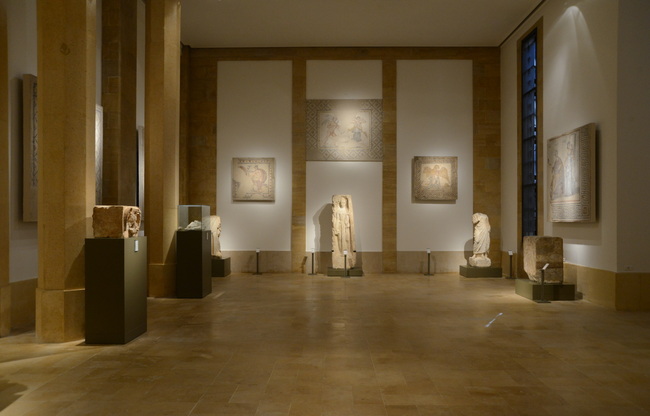Difference between revisions of "National Museum of Beirut"
| Line 3: | Line 3: | ||
<br> | <br> | ||
<br> | <br> | ||
| − | + | == Introduction == | |
| + | The National Museum of Beirut is the principal museum of archaeology in Lebanon. The collection was begun after World War I, and the museum was officially opened in 1942. The museum has collections totaling about 100,000 objects, most of which are antiquities and medieval finds from excavations undertaken by the Directorate General of Antiquities. About 1300 artifacts are exhibited, ranging in date from prehistoric times to the medieval Mamluk period. | ||
During the 1975 Lebanese Civil War, the museum stood on the front line that separated the warring factions. The museum's Egyptian Revival building and its collection suffered extensive damage in the war, but most of the artifacts were saved by last-minute preemptive measures. Today, after a major renovation, the National Museum of Beirut has regained its former position, especially as a leading collector for ancient Phoenician objects. | During the 1975 Lebanese Civil War, the museum stood on the front line that separated the warring factions. The museum's Egyptian Revival building and its collection suffered extensive damage in the war, but most of the artifacts were saved by last-minute preemptive measures. Today, after a major renovation, the National Museum of Beirut has regained its former position, especially as a leading collector for ancient Phoenician objects. | ||
| Line 10: | Line 11: | ||
[[File:National museum of beirut00-Map.jpg]] | [[File:National museum of beirut00-Map.jpg]] | ||
<br> | <br> | ||
| + | == Origins == | ||
<br> | <br> | ||
[[File:National museum of beirut02-Ent-GF.jpg]] | [[File:National museum of beirut02-Ent-GF.jpg]] | ||
Revision as of 13:53, 9 November 2014
Introduction
The National Museum of Beirut is the principal museum of archaeology in Lebanon. The collection was begun after World War I, and the museum was officially opened in 1942. The museum has collections totaling about 100,000 objects, most of which are antiquities and medieval finds from excavations undertaken by the Directorate General of Antiquities. About 1300 artifacts are exhibited, ranging in date from prehistoric times to the medieval Mamluk period.
During the 1975 Lebanese Civil War, the museum stood on the front line that separated the warring factions. The museum's Egyptian Revival building and its collection suffered extensive damage in the war, but most of the artifacts were saved by last-minute preemptive measures. Today, after a major renovation, the National Museum of Beirut has regained its former position, especially as a leading collector for ancient Phoenician objects.
